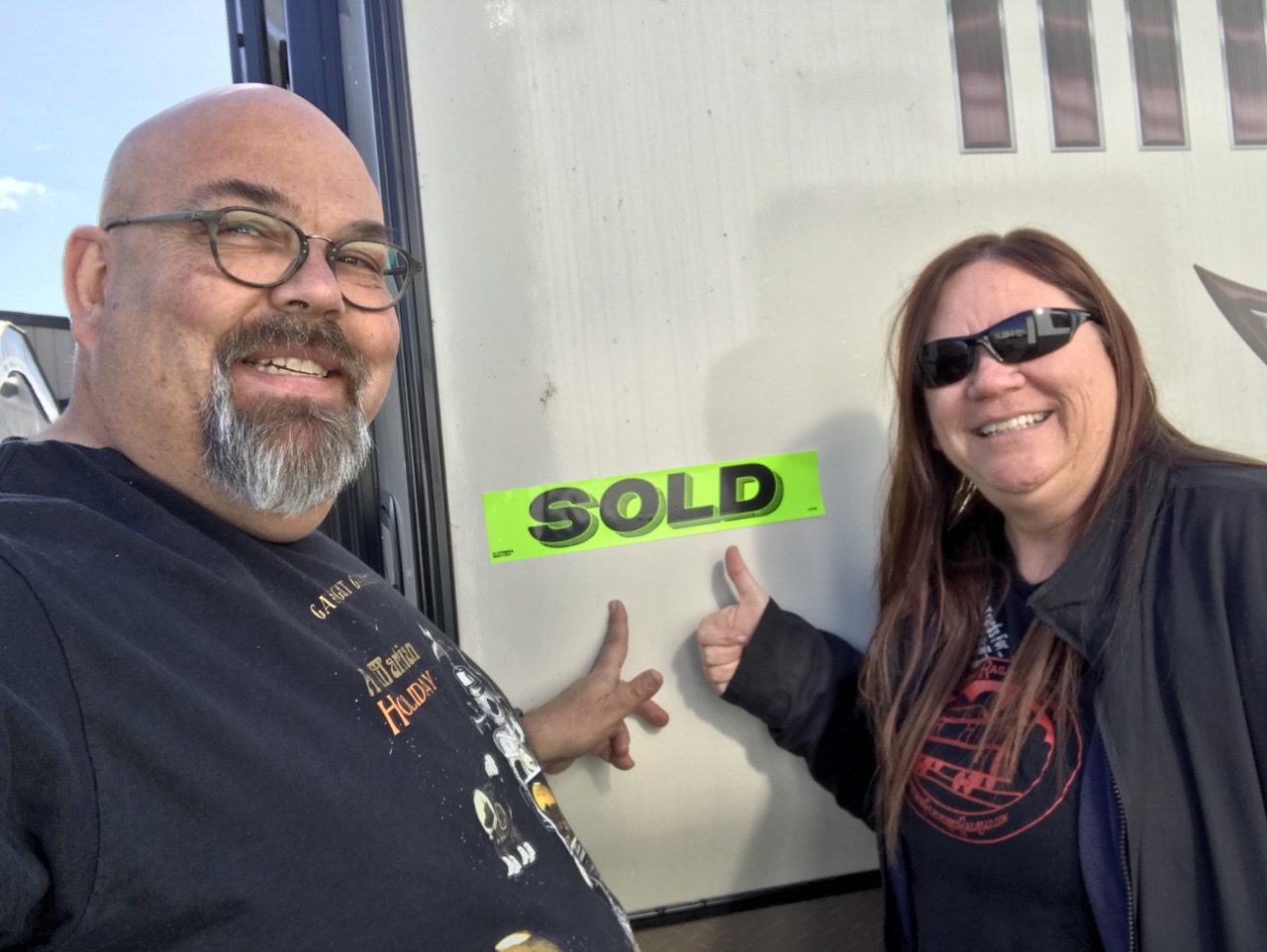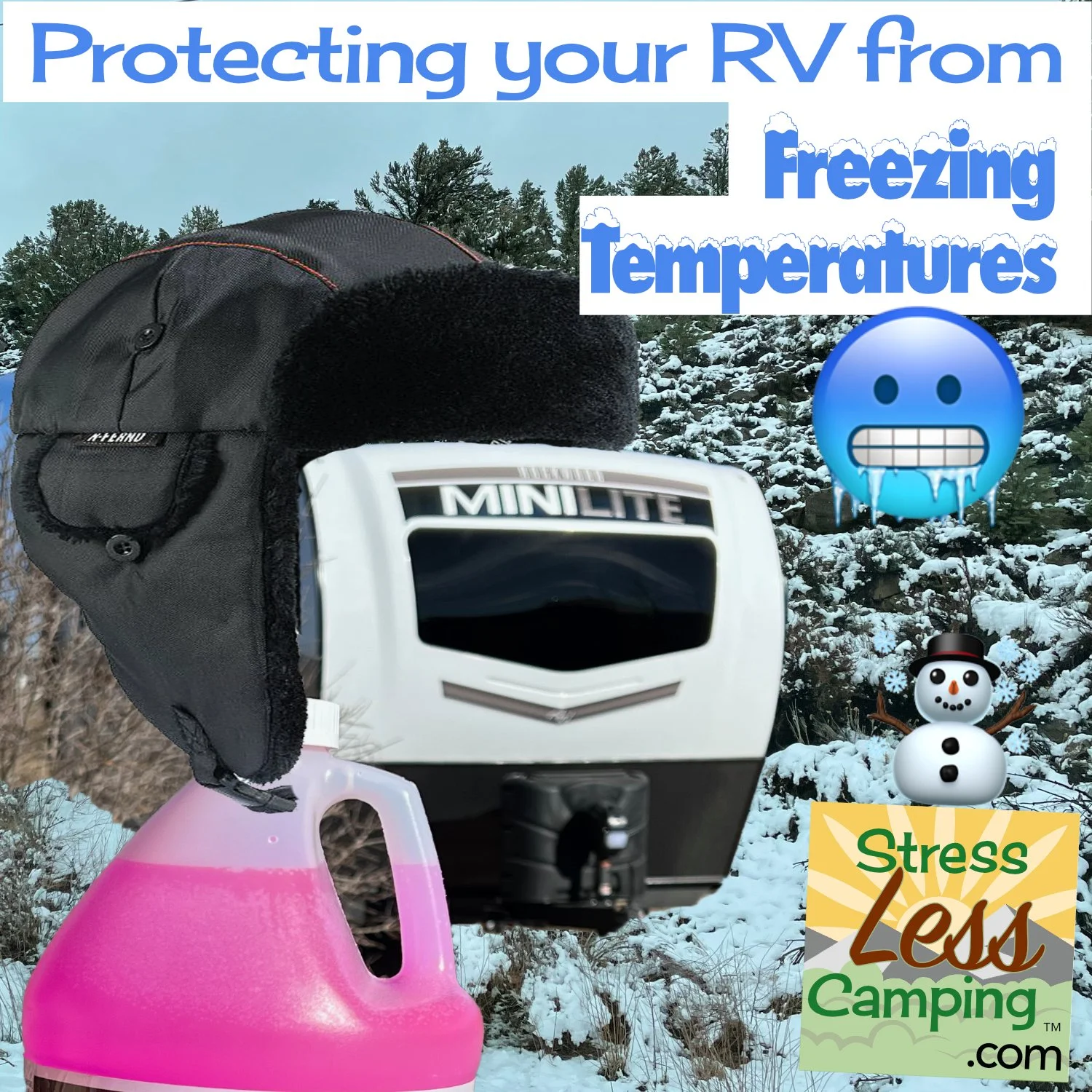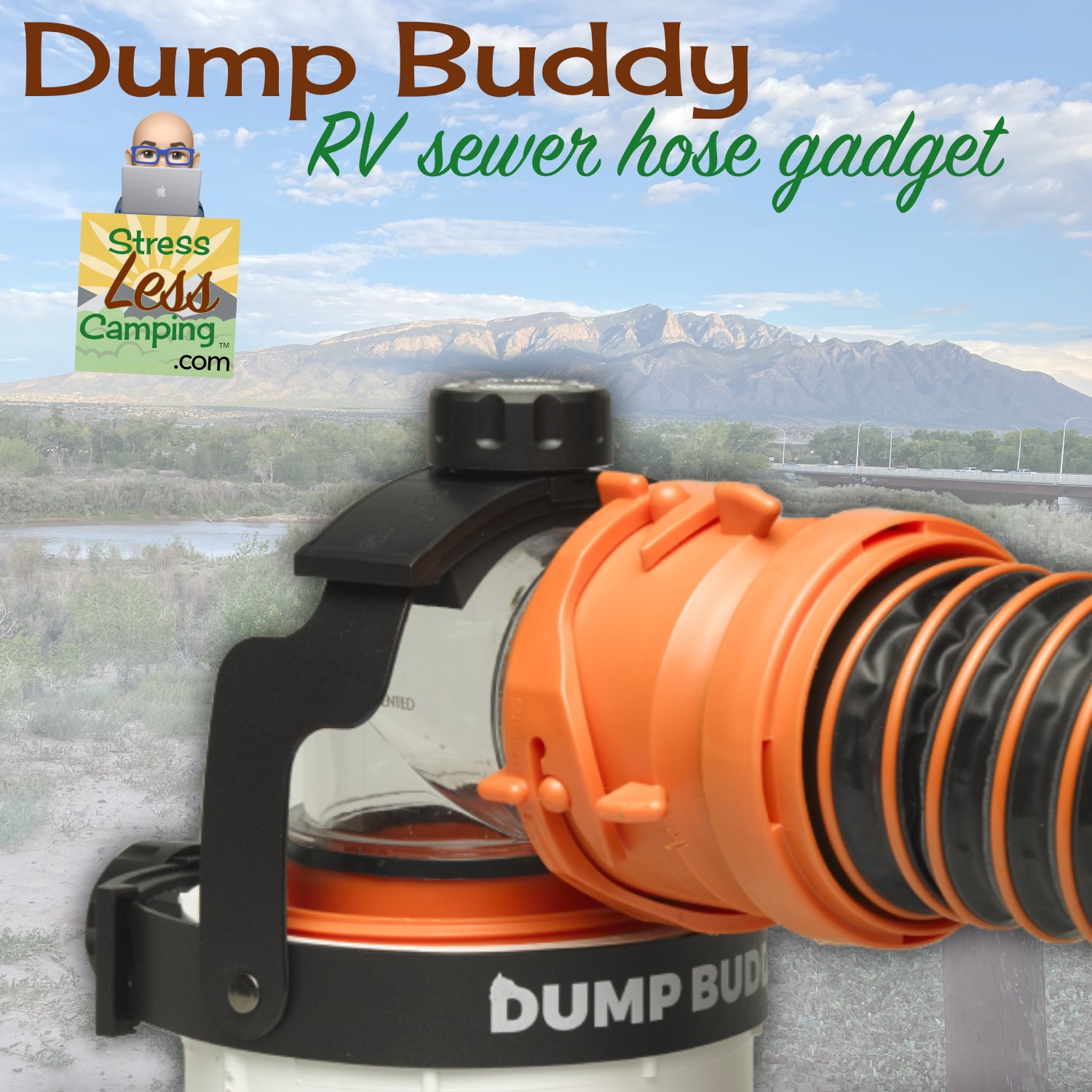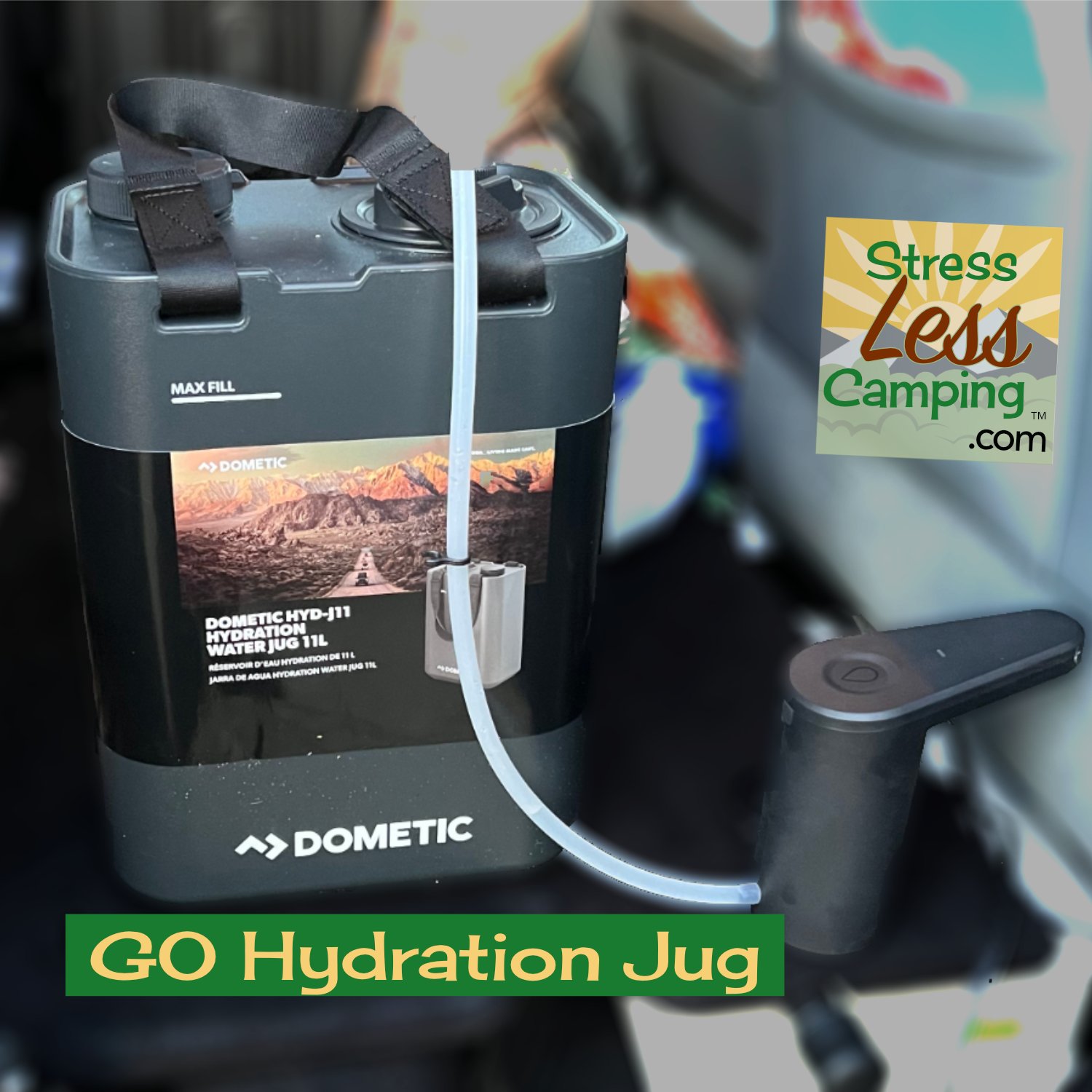How can I protect my RV from freezing temperatures?
What can you do to prevent freezing damage to your RV? With winter fully in force a lot of RVers have been asking about keeping their RVs from freezing. We have the answers here.
Know that there is no single answer to this. RVs come in all shapes and sizes as well as vintages. Some RVs have very specifically been rated to be cold climate capable, others haven’t. Further, the degree of protection built into your RV can vary widely.
What makes the difference
There are so many factors to consider that, as always, it’s best to know as much about your RV as possible.
Some towable RVs have exposed tanks underneath them. These are likely to be the first area to be affected by freezing temperatures.
Some RVs have heated spaces where the holding tanks are located. These are often heated by the RV’s furnace. With these RVs, if you’re comfortable, your tanks should be fine even if the temperatures get below freezing for a few hours overnight.
There can also be specific tank heaters. For example, our travel trailer has 12 volt heating pads that are activated at certain temperatures. But these do not heat the plumbing including the plumbing to the dump valves.
Know that just because your RV is listed as having some sort of package with cold weather protection, that really doesn’t mean anything. There really is no specific standard at this time for these packages so you should learn as much as possible about the RV itself. Here are things to consider:
Is there an independent rating for the temperature range you can camp in? For example, there are RVs that are independently certified for being able to camp in temperatures from 0°F-100°F.
Is there an outdoor shower? Is it protected only by a thin plastic door?
Are the holding tanks within a heated space?
Do your holding tanks have a heating provision?
Are the gate valves for the holding tanks in a heated place or are they exposed?
What type of plumbing is in your RV? Newer RVs are almost all plumbed with PEX plumbing which is rated to about 20° Fahrenheit. However, not all the fittings in the plumbing carry the same rating, sadly enough.
How cold is freezing
Basic science we all learned in grade school teaches that water freezes at 32° Fahrenheit. If you’re in Canada, that same water freezes at 0° Celsius. It’s like magic.
But if the temperatures overnight are going to be below freezing, how much should you worry?
If you put a glass of water in your freezer it will not be solid after an hour. Think about how many time you’ve put a drink in your freezer to cool it down. Of course we’ve all left one in there and had it freeze.
It takes time for liquids to freeze.
Whether water in your RV will freeze or not depends on a lot of factors. One of those is just how cold it is and for how long. For example, sometimes a few hours overnight below freezing are nothing to be concerned about. But that depends on the temperatures and your RV, of course.
Many RVs have all the plumbing inside of the rig specifically so it doesn’t freeze.
Some RVs have heated holding tanks. Others have fully heated enclosures for those tanks. This is particularly true of a lot of motorized RVs and fifth wheels, as well as some travel trailers.
This can work by either having electric tank heating pads on the tanks or actually using the furnace in your RV to heat the space the tanks are in.
Many RVers complain that their RV’s furnace consumes a lot of propane. Of course the larger the RV, the more energy it takes to heat it. Also, if your furnace is also providing heat to the enclosed space that the holding tanks are in, this will also use a fair amount of propane.
What freezes
One of the first things I’ve seen freeze is the outside shower on RVs. Typically this is right on the exterior of the rig and there is no insulation around it. If you’re spending time in the severe cold, you might consider winterizing your rig and making sure to include the outside shower.
If you’re camping in the severe cold, know that the incoming water line can freeze. So, too, can the sewer line.
There are heated external water lines that can be used when needed, some of which are rated for very cold sustained temperatures. You can also go to the local hardware store and get heat tape to put around the incoming water line. This can be a much less expensive route to take than having a purpose-built heated RV water hose.
If you’re going to heat tape route, you might need to include taping the gate valves for the black and gray tank dump. These are often exposed and absolutely can freeze.
One way to protect gate valves is to empty your black and gray tanks and then pour RV antifreeze into the tanks so it’s the first thing at the gate valves.
What should I do?
If you are in a place where freezing temperatures are predicted and your RV is not winterized, there are a few things you can do.
First of all, know your RV. Know whether the tanks are heated or are in a heated space within the RV. If they are, you will want to run the furnace.
You may also want to open doors to cabinets that have plumbing. Keep the doors open overnight when temperatures are particularly cold so that the heat from the furnace reaches the plumbing.
Make sure the outside shower is protected from freezing.
Consider going to an appliance retailer and getting thick cardboard. You can actually create a cardboard skirt around the RV in short order with cardboard and painter’s tape. The skirting can help prevent freezing from underneath the RV.
If you are planning to stay for longer periods there are more permanent and effective skirting methods. One we really like comes from Airskirts which are inflatable and reusable.
Make sure the black and gray tank gate valves are protected on your RV. Some RVs have the valves within an enclosed heated space, but not all.
Have as much propane as possible on hand. If you’re parked for a longer term, some local propane providers may be willing to drop larger tanks off. This could save money but also provide more peace of mind.
Turn off the incoming water if temperatures are predicted to be below freezing for sustained periods. Many people prefer to unhook the water line completely. You may be able to use your RV’s fresh water holding tank for water.
A word on energy
Know that propane, too, can be affected by the cold. At temperatures below 0°F propane can shrink and cause a drop in pressure within the system. Propane providers often recommend keeping tanks at least 30 percent full for this reason.
Know that propane can actually go from a gaseous state to a liquid state at -44°F at which point your propane-powered appliances won’t work.
Further, know that if you’re not on shore power the performance of your batteries can also be affected by the cold. For example, if you have a newer lithium battery system many of those systems have built-in protection that prevents the batteries from charging below freezing.
Also be aware that the furnace in your RV most likely operates on propane, but it also has an electric motor to operate the fan. It also needs electricity - either shore or battery power - to operate the control system. If you’re not on shore power know that the blower motor can consume quite a bit of power and may deplete the battery in your RV in under 24 hours.
We have an article about the various RV systems and how much power they consume here.
More resources
We have a few other resources that may be helpful in this area.
Can I use a winterized RV? We have an article with tips to camp in a winterized rig.
Can I use a portable electric heater in my RV?
Adam Douglas’ RV winterization tips and tricks.
A nifty gadget - the Airlight skylight insulator.
Important considerations
It’s almost impossible to provide a complete guide to cold weather camping simply because the various RV types and the way they’re designed and built varies so widely. Even under the same brand, some individual models are better suited to withstanding cold temperatures.
Options and choices made either by you when ordering your RV or by the dealership can also affect how resistant your particular RV is to cold temperatures.
As with everything RV-related it’s really critical to know as much as possible about your own RV and the conditions you’re camping in. This article is designed to make you aware of some of the variables that can affect your RV. Knowing the systems and how your RV is built is really your best protection as the temperatures drop.










